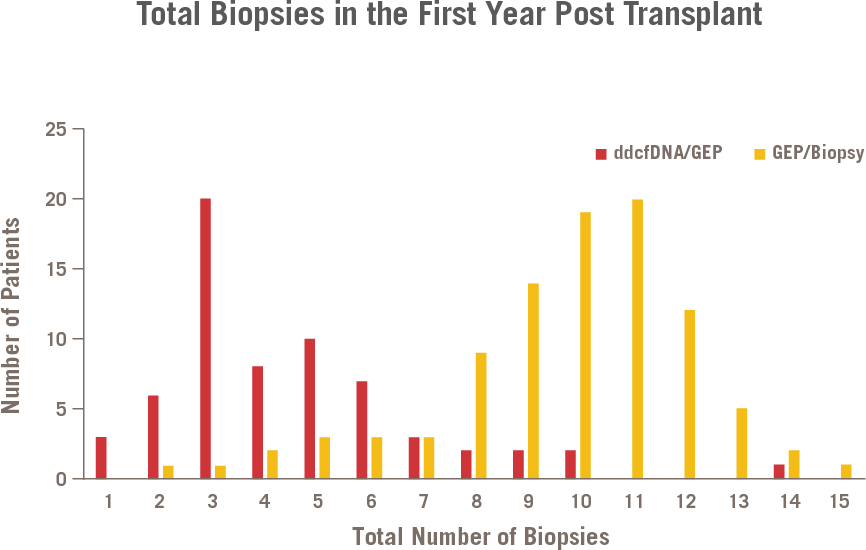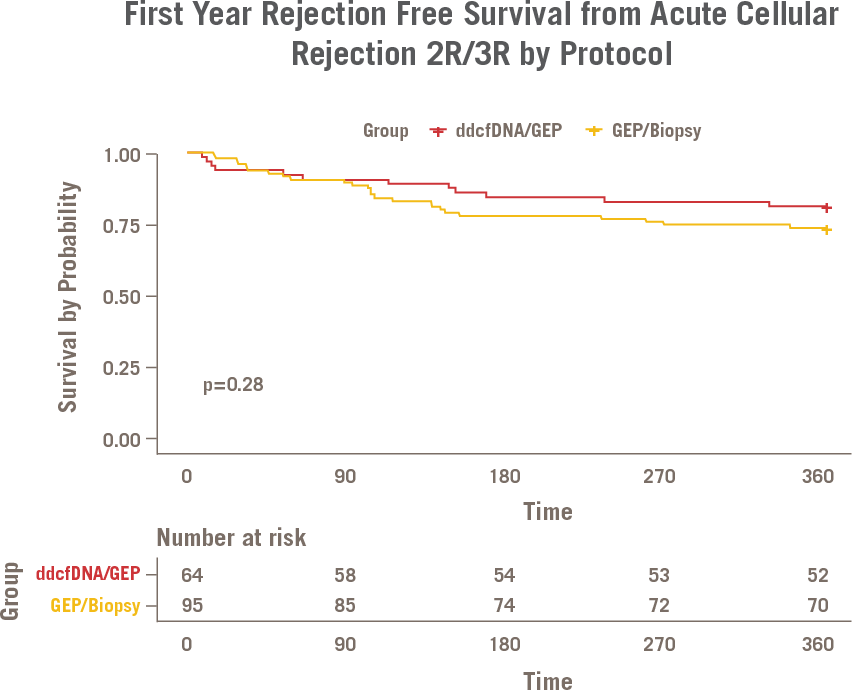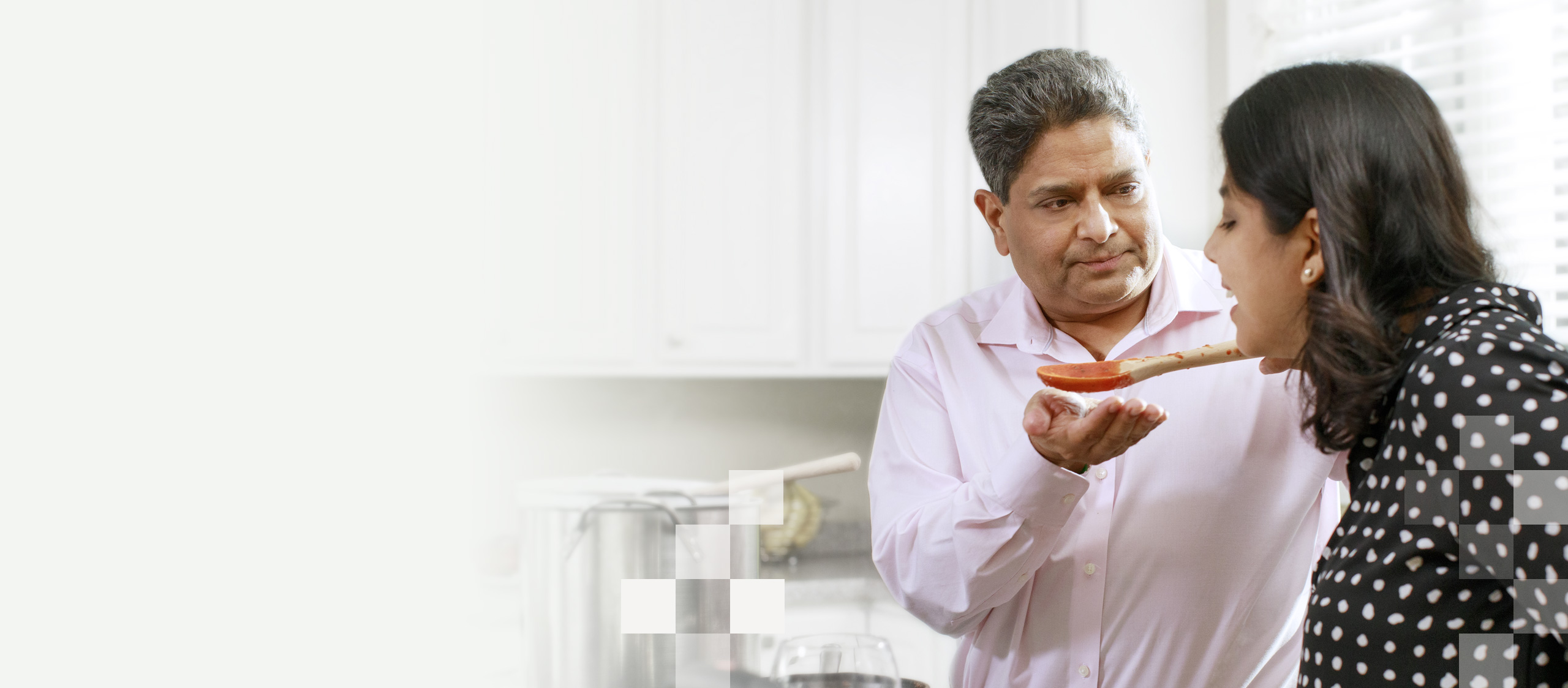Watch the HeartCare specimen collection and shipping video and download step by step instructions.
New ISHLT Guidelines Support Use of CareDx’s HeartCare Solutions, AlloMap and AlloSure, in Routine Monitoring of Heart Transplant Patients – Read More
What is HeartCare?
Provides a non-invasive, leading indicator of graft injury and immune activation/quiescence

Incorporates a multi-modality approach utilizing two complementary technologies

Provides peace-of-mind during surveillance

Utilizes AlloMap Heart, an established standard in heart transplant

*References to ISHLT are offered solely to support AlloMap’s FDA indications and should not be construed as supporting any other use.
Clinicians Rely on HeartCare When Making Clinical Decisions
In patients with a High AlloSure and a Low AlloMap, more than 75% of ACR Surveillance biopsies were deferred.

An independent study1 shows that clinicians find individual value in AlloMap and AlloSure, and use both tests for patient management.
Clinical Interpretation for HeartCare – ACR Surveillance
HeartCare helps clinicians precisely identify patients who are at higher risk of ACR.

The table is provided for informational purposes only and is not intended as medical advice. A physician’s test selection and interpretation, diagnosis, and patient management decisions should be based on his/her education, clinical expertise, current guidelines, and assessment of the patient. Please refer to publications for detailed clinical discussion. Clinical interpretation of AlloSure in Heart Transplantation graph is based on data from all commercial samples.
This table is designed for the context of surveillance testing for ACR. For patients that are at risk of AMR or being tested in other clinical context, different guidance may apply.
High AlloMap is ≥30 for ≥2-6 months or ≥34 for ≥6 months. High AlloSure is ≥0.2%.
HeartCare has been Clinically Validated in Multi-center Prospective Studies Including >4,500 Patients
New ISHLT Guidelines2 Support the Use of HeartCare in Routine Monitoring of Heart Transplant Patients
References to ISHLT are offered solely to support AlloMap’s FDA indications and should not be construed as supporting any other use. AlloMap should solely be used in conjunction with standard clinical assessment.
High HeartCare Results are Associated with a
Higher Chance of ACR
Results from two independent studies3,4 demonstrate increased ACR with concordantly elevated HeartCare results.

High AlloMap is ≥30 for ≥2-6 months or ≥34 for ≥6 months. High AlloSure is ≥0.2%.
High HeartCare Results Increased the Odds of ACR by ~14X
Data derived from the combination of two independent single center studies.3,4
The chance of a biopsy revealing ACR is greater with a high HeartCare than with either a high AlloMap or a High AlloSure alone.

Positive Likelihood Ratio gives the change in the odds of having a diagnosis in patients with a positive test. A LR+ is mathematically defined as sensitivity / (1-specificity). High AlloMap is ≥30 for ≥2-6 months or ≥34 for ≥6 months. High AlloSure is ≥0.2%.
Two Independent Studies1,4 Demonstrate Significant Reduction In Surveillance Biopsies when Using HeartCare

HeartCare Allows for Reduction in Biopsies Without Impacting the Outcomes vs. GEP Alone1
The results were similar to the post-transplant survival, rejection free survival and graft function at 1 year, while requiring significantly fewer endomyocardial biopsies.


Sample Collection and Draw Instructions
AlloMap
Watch the AlloMap specimen collection and shipping video and download step by step instructions.







